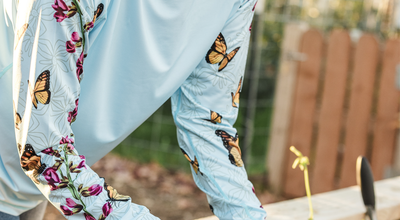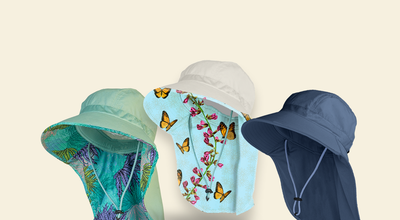Sustainable Blooms: Your Comprehensive Guide to Eco-Friendly Flower Gardening
Flower gardening doesn't only bring aesthetic appeal to your environment; it also holds the potential to create a significant positive impact on our planet. By incorporating sustainable practices in our flower gardens, we enhance the beauty around us while bolstering environmental conservation. Dive into this comprehensive guide, and discover how you can create a vibrant, eco-friendly garden.

The Beauty of Native and Pollinator-Friendly Plants:
The first step towards sustainable flower gardening lies in selecting native flowers. These plants are superbly adapted to the local environment and require fewer resources to thrive, thus conserving water and reducing the need for fertilizers and pesticides. Moreover, they play a pivotal role in providing essential food and habitat for local pollinators like bees, butterflies, and birds, crucial for attracting pollinators and supporting the health of our ecosystems.

Native plants are well-suited to your climate and soil type, making them an excellent choice for a sustainable garden. They also need less water and maintenance than non-native plants, saving you time and money. To stay protected while gardening, consider using our Farmers Sleeves made from recycled materials with moisture-wicking qualities.

The Power of Organic Pest Control:
Sustainable flower gardening goes hand in hand with minimizing chemical inputs. Opting for organic pest control methods like introducing beneficial insects (e.g., ladybugs, lacewings) and companion planting techniques (e.g., marigolds for repelling aphids, lavender for attracting pollinators) can help maintain a healthy garden ecosystem without harmful chemicals.

Conserving Water in Your Garden:
Water conservation is an integral part of sustainable flower gardening. Techniques such as mulching and drip irrigation can significantly reduce your water usage. Consider installing a drip irrigation system to direct water to your plants' roots effectively and install a rainwater harvesting system to lessen reliance on freshwater sources.
Nourishing Soil for Healthy Blooms:
Healthy soil forms the bedrock of a sustainable flower garden. Composting is an excellent practice for creating nutrient-rich soil from kitchen scraps and yard waste. The EPA's guide on composting provides great tips to get started. Use compost to boost soil fertility and improve its structure, which supports plant growth and diminishes the need for synthetic fertilizers.

Use Compost and Organic Fertilizers
Composting is a fantastic way to create nutrient-rich soil ideal for planting. Start by collecting kitchen scraps and other organic materials like leaves and grass clippings. Add these to a compost bin, and allow the mixture to decompose over time. Once it's ready, use the compost as a natural fertilizer for your garden. Check out our guide on how to make your own Gardening Soil for more details.
Organic gardening practices such as composting and refraining from chemical pesticides and fertilizers can help make your garden more sustainable. These methods improve soil health and promote healthy plant growth, thereby reducing the need for water and other resources.
Reducing, Reusing, and Recycling for a Greener Garden:
Mindful consumption and waste reduction in your flower garden can significantly contribute to sustainability. Opt for biodegradable plant pots, organic fertilizers, and eco-friendly garden tools. Embrace recycling by composting plant waste and repurpose materials wherever possible, using resources like the EPA's guide to reducing waste.
Conclusion:
As flower gardeners, we hold the power to generate beauty while promoting sustainability. By adopting these sustainable practices—choosing native plants, utilizing organic pest control, practicing water conservation, nurturing healthy soil, and reducing waste—we can positively influence the environment. Let's nurture blooms for a better planet, inspiring others to foster vibrant, eco-friendly flower gardens that benefit both people and our planet.













